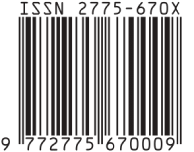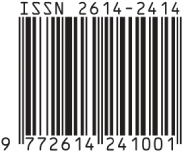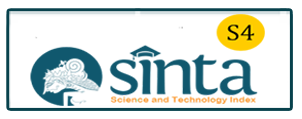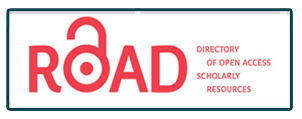THE APPROACH TO INTERNATIONAL HUMAN RIGHTS LEGAL STANDARDS IN IMPLEMENTING THE COVID-19 VACCINATION FOR PRINCIPAL OFFICERS
PENDEKATAN STANDAR HUKUM HAK ASASI MANUSIA INTERNASIONAL DALAM PELAKSANAAN VAKSINASI COVID-19 BAGI PETUGAS PEMASYARAKATAN
Abstract
Abstract
The Covid-19 pandemic that hit Indonesia had an impact on the implementation of public services provided by government agencies, including correctional institutions and state detention houses. In addition to the implementation of health protocols, the government issued a policy to vaccinate Covid-19 to public service officers including correctional officers. In the context of handling the Covid-19 pandemic through the implementation of vaccinations for correctional officers, it is necessary to know which international human rights legal standards can be a guideline or reference of member states, especially Indonesia. Based on the description, the research question in this paper is how is the approach of international human rights law standards in the implementation of Covid-19 vaccination for correctional officers. The results of the first study, in Central Java and Bali, vaccination policy following the Regulation of the Minister of Health No. 10 of 2021 on the Implementation of Vaccination in the Framework of Countering the Pandemic Corona Virus Disease 2019 (Covid-19) especially for correctional officers realized one of them in correctional institutions Class IIB Tegal and state detention house Class IIB Negara. Second, international human rights law standards that can be a guideline or reference of Indonesia in the context of the implementation of Covid-19 vaccination for correctional officers are the International Covenant on Economic, Social and Cultural Rights (ICESCR) in particular the provisions of Article 12 paragraph (1) and Article 12 paragraph (2) letter c, and The Nelson Mandela Rules, in particular, the provisions of Rule 74 number 3.
Keywords :
Human Rights Law, Vaccination, Covid-19, Corrections
Abstrak
Pandemi Covid-19 yang melanda Indonesia membawa dampak kepada pelaksanaan pelayanan publik yang diberikan oleh instansi pemerintah, tidak terkecuali lembaga pemasyarakatan dan rumah tahanan negara. Selain penerapan protokol kesehatan, pemerintah mengeluarkan kebijakan untuk melakukan vaksinasi Covid-19 kepada petugas pelayanan publik termasuk petugas pemasyarakatan. Dalam konteks penanganan pandemi Covid-19 melalui pelaksanaan vaksinasi bagi petugas pemasyarakatan, perlu diketahui standar hukum HAM internasional mana yang dapat menjadi pedoman atau referensi negara anggota khususnya Indonesia. Berdasarkan uraian tersebut, pertanyaan penelitian dalam tulisan ini adalah bagaimana pendekatan standar hukum HAM internasional dalam pelaksanaan vaksinasi Covid-19 bagi petugas pemasyarakatan. Hasil penelitian yakni pertama, di Jawa Tengah dan Bali, kebijakan vaksinasi yang sesuai dengan Peraturan Menteri Kesehatan Nomor 10 Tahun 2021 tentang Pelaksanaan Vaksinasi Dalam Rangka Penanggulangan Pandemi Corona Virus Disease 2019 (Covid-19) khususnya bagi petugas pemasyarakatan direalisasikan salah satunya di Lapas Kelas IIB Tegal dan di Rutan Kelas IIB Negara. Kedua, standar hukum HAM internasional yang dapat menjadi pedoman atau referensi Indonesia dalam konteks pelaksanaan vaksinasi Covid-19 bagi petugas pemasyarakatan adalah International Covenant on Economic, Social and Cultural Rights (ICESCR) khususnya ketentuan Pasal 12 ayat (1) dan Pasal 12 ayat (2) huruf c, dan The Nelson Mandela Rules khususnya ketentuan Aturan 74 angka 3.
Kata kunci :
Hukum Hak Asasi Manusia, Vaksinasi, Covid-19, Pemasyarakatan
Copyright (c) 2021 MARKUS MARSELINUS SOGE

This work is licensed under a Creative Commons Attribution-NonCommercial 4.0 International License.













